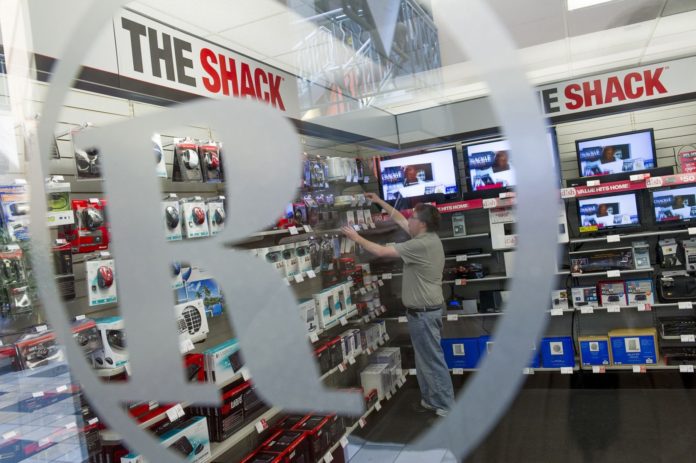NEW YORK — HRG Group Inc., the holding company formerly known as Harbinger Group Inc., is still paying for the collapse of RadioShack Corp. as it seeks to recover from losses on loans two units made to the retailer before its bankruptcy filing.
Fidelity & Guaranty Life said Wednesday that its participation in a $250 million loan to RadioShack arranged by HRG-owned Salus Capital Partners contributed to a $32 million impairment charge that wiped out its first-quarter profit. Harbinger bought FGL in 2011 under former Chairman Philip Falcone, then sold a stake of about 19 percent in an initial public offering in 2013.
HRG said in a statement it’s considering the sale of the remaining stake. It’s also reviewing options for Salus that include a sale of the firm after the lender suffered losses linked to the RadioShack loan, four people familiar with the matter said last month.
The holding company’s shake-up stems from risks it took by branching into investments in distressed companies to boost returns.
HRG reported a loss of $1.16 a share in the quarter ended March 31, compared with a loss of 63 cents in the year-earlier period, according to a regulatory filing Friday. Revenue increased 2.3 percent to $1.37 billion.
The holding company took a loss of $105 million on the RadioShack loan of the $150 million Salus and Fidelity invested in 2013, the company said.
Falcone was banned by New York State from running FGL for seven years starting in 2013 because he improperly used money from his hedge funds to pay personal taxes. Last year, he stepped down from what was then Harbinger when its largest shareholder, Leucadia National Corp., raised its stake to 23 percent.
Until RadioShack, most of Salus’s average loans were in increments of $30 million or less, according to its website.
“It’s troubling that firms like HRG and some private- equity funds are buying insurance companies and get them to invest in high-return assets,” said Erik Gordon, a professor at the University of Michigan’s Ross School of Business. “It’s a question worth asking whether that’s the right thing to do by insurance firms that are supposed to take limited risks to pay their clients.”
Falcone and James Hart, a spokesman for HRG, declined to comment. Phil Denning, a spokesman at Integrated Corporate Relations for Salus Capital, and Lisa Foxworthy-Parker, a spokeswoman at Fidelity, didn’t respond to messages seeking comment.
New York is keeping an eye on investment firms that buy into insurers. Benjamin Lawsky, superintendent of the state’s Department of Financial Services, required Apollo Global Management and Guggenheim Partners to meet heightened capital standards on purchases in 2013.
HRG, whose major shareholders include Fortress Investment Group LLC, with a 16 percent stake, owns businesses from consumer products maker Spectrum Brands Holdings to oil-and-gas operator Compass Production GP.
HRG shares have fallen 13 percent this year. FGL is down 13 percent, while the Standard & Poor’s 500 index has gained 2.6 percent.
FGL’s exposure to RadioShack came through three main investments, Dennis Vigneau, chief financial officer of Fidelity, said Thursday on a conference call. They comprise a $50 million participation in the loan to the retailer, a $63 million ownership of a collateralized loan obligation managed by Salus and a $33 million investment through a reinsurance entity.
The gross impairments were $81 million, and included the loan’s fair value decreasing to $15 million and the CLO tumbling to $38 million.
“When this company came public, certain investors were concerned about some of the relationships between FGL and other Harbinger companies,” Sean Dargan, an analyst at Macquarie Group Ltd, said by telephone. “I wouldn’t mind to see there being less of a relationship between Salus and FGL going forward.”






